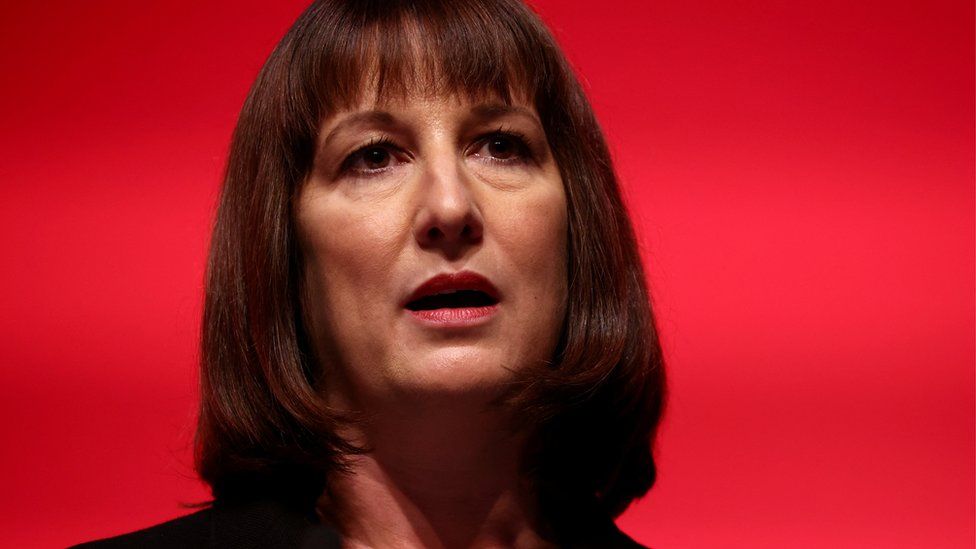
By Becky Morton
Political reporter
Labour has rowed back on its pledge to invest £28bn a year in green industries if it wins power, saying it needs to be “responsible” with the public finances.
Instead shadow chancellor Rachel Reeves said she would now ramp up investment over time from a 2024 election win, reaching £28bn a year by 2027.
She told the BBC that after the Tories “crashed the economy” it was important not to be “reckless” with spending.
Speaking to Radio 4’s Today programme, Ms Reeves added that after prices and interest rates increased “financial stability has to come first”.
Factors including the war in Ukraine have seen inflation soar and the Bank of England has increased interest rates, making borrowing more expensive, in an attempt to tame rising prices.
Former PM Liz Truss’s mini-budget last year, which included billions of pounds of unfunded tax cuts, also prompted turmoil in the financial markets and led to interest rates rising further.
“The truth is I didn’t foresee what the Conservatives would do to our economy,” Ms Reeves said.
“We will get to the investment that is needed. But we’ve got to do that in a responsible way.”
However, pressed on how much investment there would be in the first year of a Labour government, Ms Reeves would not commit to a figure, arguing the economic backdrop would not be clear until closer to the time.
Announcing the party’s Green Prosperity Plan in 2021, Ms Reeves said the £28bn would come from borrowing and would be spent on projects like offshore wind farms and developing batteries for electric vehicles.
Since then the economic picture has changed considerably, with interest rates and borrowing costs soaring.
Labour wants to be seen as economically credible and privately there had been concerns raised about whether the £28bn of investment was affordable in the current context.
A senior Conservative source told the BBC that it wasn’t surprising Labour had watered down its pledge.
“The pledge was made when interest rates were at rock bottom,” they said.
“To borrow £28bn each and every year for a decade would fuel inflation, and force [the Bank of England] to raise interest rates even further. It’s the height of irresponsibility.”
The source added there were “still issues with the pledge” and “a lot of deadweight cost where the private sector would’ve invested anyway”.
Image source, Reuters
Rachel Reeves toured the New York Stock Exchange on a three-day visit to the US last month
Ms Reeves was also critical of the deal Prime Minister Rishi Sunak secured with the US on his visit to Washington this week.
Plans for a full free trade agreement have been abandoned but the new proposals include allowing UK electric car firms access to US green tax credits and subsidies.
Ms Reeves, who visited the US herself last month, said she was “staggered” that Mr Sunak had returned with “no industrial plan for Britain”.
She has said Labour is taking inspiration from US President Joe Biden’s plan to tackle inflation and create jobs, which includes a huge package of subsidies and tax breaks for green industries.
But she said her “secureonomics” strategy would be “built on the rock of financial stability and economic security”, with strict limits on borrowing.
Labour has also promised to create a publicly owned renewable energy company to create jobs and improve the country’s energy security.
Last week the party pledged to ban new licences for oil and gas production in the UK, despite concerns from unions this could cost jobs.








